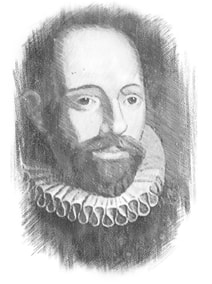jacobus arminius

Jacobus Arminius, Dutch Jacob Harmensen or Jacob Hermansz, (born October 10, 1560, Oudewater, Netherlands—died October 19, 1609, Leiden), theologian and minister of the Dutch Reformed Church who opposed the strict Calvinist teaching on predestination and who developed in reaction a theological system known later as Arminianism. He served from 1603 as professor in theology at the University of Leiden and wrote many books and treatises on theology. At Amsterdam, Arminius taught through "a number of sermons on the Epistle of the Romans". In discussing Romans 7 in 1591, he taught that man, through grace and rebirth, did not have to live in bondage to sin, and that Romans 7:14 was speaking of a man living under the law and convicted of sin by the Holy Spirit, yet not presently regenerated. This was met with some resistance, and some detractors labeled him Pelagian for teaching that an unregenerate man could feel such conviction and desire for salvation, even with the influence of the Law and the Holy Spirit. According to John Wesley, himself an Arminian, “No man that ever lived, not John Calvin himself, ever asserted either original sin, or justification by faith, in more strong, more clear and express terms, than Arminius has done. These two points, therefore, are to be set out of the question: In these both parties agree.” Where they disagree is in the third point. Said Wesley, “The former believes absolute, the latter only conditional, predestination.” This necessarily affects the answer the theologian gives to the final two questions.
 Jacobus Arminius
Jacobus Arminius
“But in his lapsed and sinful state, man is not capable, of any by himself, either to think, to will, or to do that which is really good, but it is necessary for him to be regenerated and renewed in his intellect, affections or will, and in all his powers, by God in Christ through the Holy Spirit, that he may be qualified rightly to understand, esteem, consider, will, and perform whatever is truly good. When he is made a partaker of this regeneration or renovation, I consider that, since he is delivered from sin, he is capable of thinking, willing, and doing that which is good, but yet not without the continued aids of Divine Grace.” ― James Arminius
 Jacobus Arminius
Jacobus Arminius
“[Theology] may be defined, the doctrine or science of the truth which is according to godliness, and which God has revealed to man that he may know God and divine things, may believe on Him and may through faith perform to Him the acts of love, fear, honour, worship and obedience, and obtain blessedness from Him through union with Him, to the divine glory... On this account, theology is not a theoretical science or doctrine, but a practical one, requiring the action of the whole man, according to all and each of it's parts -- an action of the most transcendent description, answerable to the excellence of the object as far as the human capacity will permit.”
― James Arminius, The Works of James Arminius, Volume 2
― James Arminius, The Works of James Arminius, Volume 2
 Jacobus Arminius
Jacobus Arminius
“Next to the study of the Scriptures which I earnestly inculcate, I exhort my pupils to peruse Calvin’s Commentaries, which I extol in loftier terms than Helmich himself [a Dutch divine, 1551–1608]; for I affirm that he excels beyond comparison in the interpretation of Scripture, and that his commentaries ought to be more highly valued than all that is handed down to us by the library of the fathers; so that I acknowledge him to have possessed above most others, or rather above all other men, what may be called an eminent spirit of prophecy” ― Jacobus Arminius
 Jacobus Arminius
Jacobus Arminius
“God himself is the object of theology.... He is the best; that is, he is the first and highest good and goodness itself, and he alone is good, as good as goodness itself, ready to communicate it as far as it can be communicated; his great liberality is matched by the treasures he possesses.... He is the greatest, and he alone is great.” ― Jacob Arminius
 Rob Phillips Files
Rob Phillips Files
The non-Reformed (Arminian) position is that God’s election is conditional; that is, God selected specific persons for salvation based on foreseeing their response in belief and repentance to the gospel message. As taught by Jacobus Arminius, after whom Arminianism is named, God’s election to salvation is the election of believers, which means that election is conditioned on faith. Arminius also insisted that God’s foreknowledge of people’s choices did not cause those choices or make them necessary.
--Rob Phillips; The Pathway; What is the Doctrine of Election 3.16.19
--Rob Phillips; The Pathway; What is the Doctrine of Election 3.16.19



